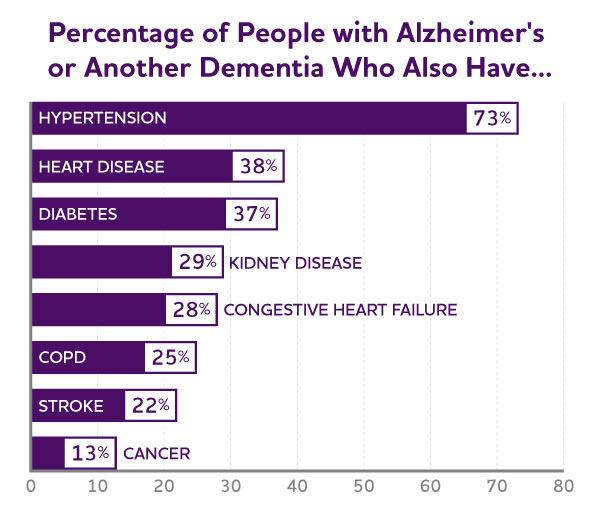Chronic Diseases and Dementia

For an overview of this issue:
- Alzheimer's and Multiple Chronic Conditions (PDF).
- More information on various chronic conditions and risk factors.
What can public health do
To improve the health of a community, public health officials must address the chronic conditions that are risk factors for dementia and the complications in chronic condition management that are complicated by the presence of dementia.Specifically, public health officials can:
- Educate the public about how certain healthy behaviors — such as exercising and quitting smoking — may help reduce the risk of many chronic conditions, which in turn could reduce the risk of dementia.
- Ensure health care providers understand the connection between chronic conditions and the risk for cognitive decline and dementia — and ensure that health care providers are making such connections with their individual patients.
- Educate providers about how management and treatment of various chronic conditions could be complicated by dementia, how that treatment may need to be adjusted to accommodate an individual's cognitive impairment, and the importance of developing a care plan with cognitively-impaired individuals.
- Ensure that public health agency-sponsored programs and interventions on chronic conditions are dementia-friendly.
- Establish relationships and partnerships with organizations addressing chronic health conditions related to dementia, including heart disease and stroke.
